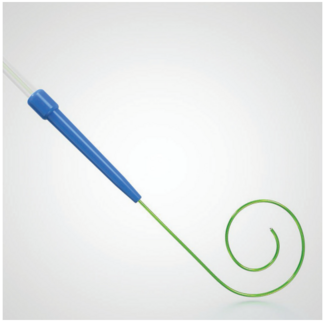Younger Patients With Asymptomatic Aortic Stenosis Who Undergo TAVR Experience Lower Rates of Serious CV Events, Including Stroke
Analysis from EARLY TAVR Trial Shows Early TAVR Correlates to Lower Risk of Death, Stroke, or Heart Failure Hospitalization Compared to Clinical Surveillance Across Patients Aged 65 to Over 80
Analysis from EARLY TAVR Trial Shows Early TAVR Correlates to Lower Risk of Death, Stroke, or Heart Failure Hospitalization Compared to Clinical Surveillance Across Patients Aged 65 to Over 80
Society for Cardiovascular Angiography & Interventions (SCAI) News
WASHINGTON, D.C. — New analysis from the EARLY TAVR trial showed patients between the age of 65 and 70 years old derived the most benefits of a strategy of early intervention with transcatheter aortic valve replacement (TAVR) compared to other age groups, especially in regards to stroke risk, and in regards to the composite of death, stroke, and heart failure hospitalization. The late-breaking results were presented today at the Society for Cardiovascular Angiography & Interventions (SCAI) 2025 Scientific Sessions.
As many as 300,000 Americans are diagnosed with AS each year, a serious condition that occurs when the aortic valve in the heart is narrowed or blocked. Two common methods to improve AS are TAVR, a minimally invasive procedure that replaces a diseased valve with a new valve, and CS, or routine patient monitoring. For patients with asymptomatic, severe AS, the EARLY TAVR trial demonstrated that a strategy of early TAVR was superior to CS for the primary endpoint of death, stroke, or unplanned cardiovascular hospitalization. This data presentation will provide the first report from the randomized, controlled EARLY TAVR trial on whether a patient’s age should influence decision-making on procedural timing for patients with asymptomatic, severe AS.
The primary goals of the study were to quantify death, stroke, and unexpected cardiovascular hospitalization. Researchers found 901 patients with asymptomatic severe AS and placed 455 into an early TAVR group and 446 into a CS group. The average follow-up time was 3.8 years. Baseline characteristics and health status were similar between treatment groups.
Older age was associated with higher rates of death, stroke, or HF hospitalizations up to five years post-procedure for both patient groups. Early TAVR demonstrated benefits over CS across all age groups. That said, patients aged 65-69 who underwent early TAVR derived the most benefits, with significant reduction in stroke risk (0% early TAVR vs. 13% CS) and had six times lower rate of death, stroke, or HF hospitalization compared to those who underwent CS (4.7% vs. 25.6%, respectively) up to five years post-procedure. Patients aged over 80 years old also derived the most benefits in regards of stroke risk, with early TAVR strategy associated with a 4-fold reduction in stroke up to 5 years follow-up compared to clinical surveillance
"Those results are important and highlights the benefits of early intervention among younger patients with asymptomatic severe aortic stenosis, especially in regards to stroke risk, a complication which is the most feared by patients. We are discovering that aortic stenosis itself might be an important risk factor of stroke if left untreated. Taking all together, and given the benefits and the lack of risks in patients 65 years or greater, early TAVR should be preferred to clinical surveillance in all age groups ,” said Philippe Genereux, MD, Morristown Medical Center in Basking Ridge, New Jersey and lead author of the study.
Session Details:
- “Impact of Age on Procedural Timing for Asymptomatic Severe Aortic Stenosis: Results from the Early TAVR Trial”
- Friday, May 2, 2025;11:36-11:44 AM EST
- Walter E. Washington Convention Center, Hall D: Theater 4
About SCAI Scientific Sessions 2025
The SCAI Scientific Sessions annual meeting convenes 2,000 of the world’s premier clinicians, scientists, researchers, and innovators in the field of interventional cardiology and endovascular medicine. With 500+ faculty and hundreds of abstracts, experts in the field work together to share the latest clinical data, procedural guidance, and advanced expertise. Highlights will include live cases, featured clinical research, new SCAI clinical documents, case-based learning, and keynote speakers. For more information, visit SCAI 2025 Scientific Sessions | SCAI.
About Society for Cardiovascular Angiography & Interventions (SCAI)
The Society for Cardiovascular Angiography & Interventions, established in 1978, stands as the primary nonprofit medical society dedicated to representing invasive and interventional cardiology. SCAI's mission is to guide the global interventional cardiovascular community by fostering education, advocacy, research, and upholding standards for quality patient care. For more than 40 years, SCAI has exemplified professional excellence and innovation worldwide, cultivating a reputable community of over 5,000 members committed to advancing medical science and providing life-saving care for individuals, both adults and children, affected by cardiovascular disease. For more information, visit SCAI.ORG.
Find More:
Cardiovascular Ambulatory Surgery Centers (ASCs) Topic Center
The Latest Clinical & Industry News
Grand Rounds With Morton Kern, MD
Peripheral Artery Disease Topic Center
Podcasts: Cath Lab Conversations
Go to Cath Lab Digest's current issue page
Go to the Journal of Invasive Cardiology issue page












